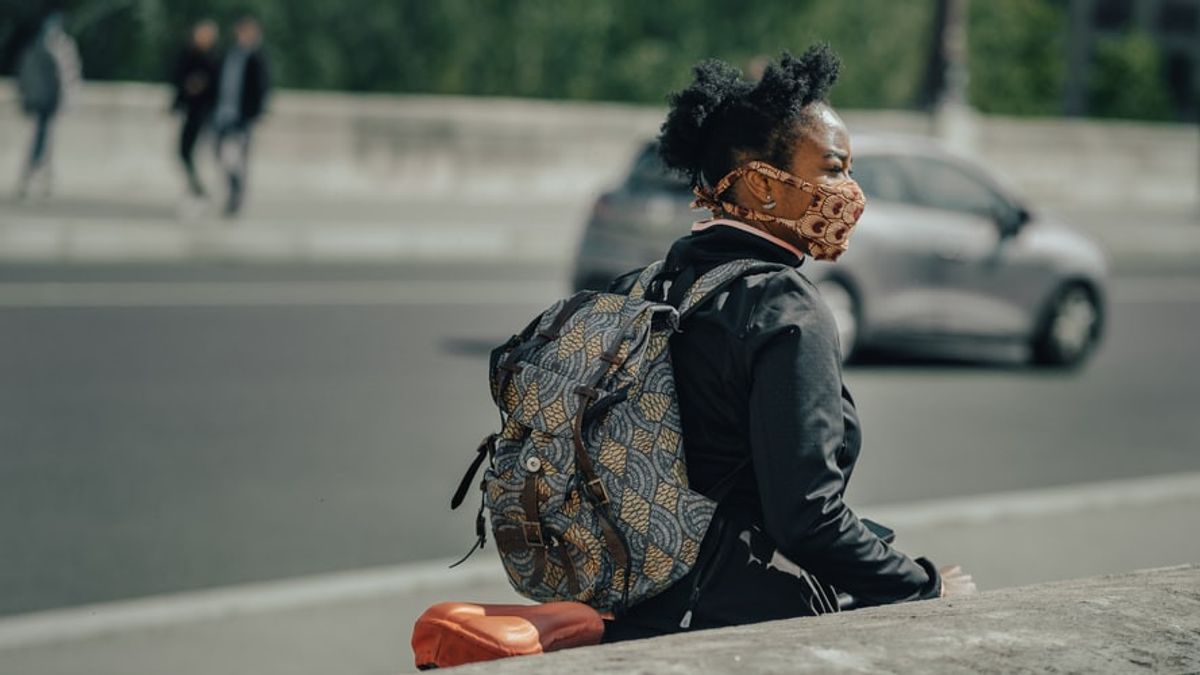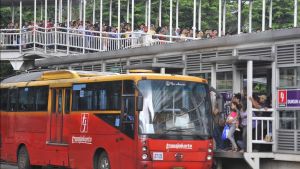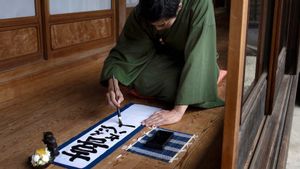JAKARTA - The COVID-19 pandemic has made the authorities make every effort to clean up many places. From private residences to public places, almost everything is free from disinfectants. Unfortunately, many people forget that viruses spread through the air more quickly.
At home, we often find people spraying disinfectant from the gate of their house. We also become more diligent in cleaning objects that we touch frequently, such as tables, chairs, and even cell phones that are difficult to get out of our hands, now wiping them more often using wet wipes.
Not to mention in offices. In the places where we work, before entering the room, it is mandatory for hands and shoes to be sprayed with disinfectant liquid. Don't ask about chairs, tables, and other work equipment that must be sprayed with anti-bacterial fluids every day.
This cleaning habit has become global now. One of the places that looks so diligent about cleaning is the Hong Kong airport. The cleaning team often sprayed trolleys, elevator buttons and check-in counters with an antimicrobial solution. Meanwhile in New York, workers are constantly disinfecting bus and subway surfaces.
However, scientists quoted by The New York Times explained that there is no evidence contaminated surfaces can spread the virus, if any, only a small part. They gave an example, in a crowded room such as an airport, the virus breathed by an infected person is a much bigger threat.
Indeed, washing hands with soap and water for 20 seconds is still a powerful way to stem the new corona virus. However, scrubbing the surface does little to reduce the threat of viruses in the room. The scientists suggest that instead of scrubbing the surface more heavily, improve ventilation and better filtering of indoor air.
"In my opinion, a lot of time, energy and money is wasted on surface disinfection and, more importantly, distracts from preventing airborne transmission," said Dr. Kevin P. Fennelly, respiratory infection specialist as quoted by The Times.
Some of these experts took Hong Kong as their case study. An area that is populated by 7.5 million people and has a long history of disease outbreaks is an example of a false sense of security about COVID-19 because cleaning is often carried out.
The study found that the virus persists on several surfaces, including plastic and steel, for up to three days. The World Health Organization (WHO) also emphasizes surface transmission as a risk and says airborne transmission is a concern only if healthcare workers are involved in certain aerosol-producing medical procedures.
Danger in the airScientific research on the spread of COVID-19 continues to grow. Most recently, they found that the virus can survive hours in motionless air, infecting people as they breathe it.
In July, an essay in the medical journal The Lancet stated that some scientists exaggerated the risk of COVID-19 infection from the surface without considering evidence from closely related studies, including SARS-CoV, the driver of the 2002-2003 SARS epidemic.
"This is very strong evidence that at least for the SARS virus, the least fomite transmission," said the essay's author, microbiologist Emanuel Goldman of Rutgers University. "There is no reason to expect that SARS-CoV-2's close relative would behave significantly differently in an experiment like this," he added.
In the days after the essay appeared, more than 200 scientists visited the WHO to say that the coronavirus can spread through the air in any indoor environment. Bowing to enormous public pressure over this issue, the WHO later acknowledged that indoor aerosol transmission could cause outbreaks in poorly ventilated indoor places such as restaurants, nightclubs, offices and places of worship.
But the paranoia about touching anything from handrails to grocery bags has already occurred. The instinct to scrub the surface as a preventative measure for COVID-19 is deeply ingrained.
Even though it has been reminded that the main transmission of COVID-19 is through droplets that are scattered in the air, this has not been given attention. Initially, officials required Hong Kong restaurants to install dividers between tables, which was basically useless as well. But Hong Kong authorities have gradually begun easing restrictions including allowing weddings of up to 50 people, as there are fears of a potential new outbreak indoors.
"People take off their masks at lunch or when they return to their cubicles because they think their cubicle is their private place," said Yeung King-lun, a professor of chemical and biological engineering at the Hong Kong University of Science and Technology. "But remember: The air you breathe is essentially communal."
Hong Kong's COVID-19 cases are not as severe as other countries, with more than 5,400 cases and 108 deaths. But some experts say it is still slow to address the risk of indoor droplet transmission.
The English, Chinese, Japanese, Arabic, and French versions are automatically generated by the AI. So there may still be inaccuracies in translating, please always see Indonesian as our main language. (system supported by DigitalSiber.id)












